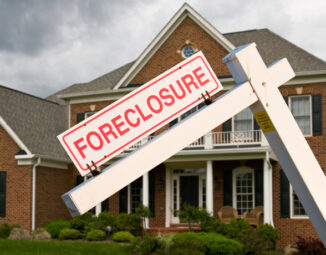Managing Your Airbnb Rental in the COVID-19 Era
As previously discussed in the May 6, 2019 Obermayer blog, the Pennsylvania Supreme Court, in Slice of Life, LLC et al. vs. Hamilton Township Zoning Hearing Board, et al. decided unanimously that short-term rentals are prohibited in areas zoned single family residential or single housekeeping unit, even if the zoning ordinance does not expressly prohibit short-term rentals. The case is a warning to anyone who has or is contemplating renting out their property on a short-term basis. If you fail to determine whether short-term rentals are permissible, you may open yourself up to penalties and fines as well as loss of insurance coverage.
Even if you determine that short-term rentals are allowed under your zoning ordinance, however, other pitfalls exist.
The laws related to rentals often are included as part of a city’s zoning or administrative codes. In some cases, these laws require a host to obtain a permit or license prior to listing their property. For example, Section 14-604(13) of The Philadelphia Code provides that all limited lodging must be arranged through a booking agent. Subsection (b)(2) also provides that a home many not be rented for more than 180 days out of a year, and if it is rented in excess of 90 days, the host must obtain a use permit. It is also important to remember that in Pennsylvania there are tax consequences to renting a property to the same person for a period of less than 30 days. The Department of Revenue requires short-term rentals to remit hotel occupancy taxes and to collect an additional one percent for local hotel taxes in certain counties such as Allegheny and Philadelphia.
Even after compliance with zoning and administrative codes, you must make sure you comply with the short-term rental agency’s mandatory safety practices. If you decide to rent with Airbnb, you are required to comply with the company’s mandatory safety practices which were based on guidance from the World Health Organization and the US Centers for Disease Control. Similar booking sites such as Vrbo have also compiled lists of comprehensive cleaning and disinfecting guidelines.
The last thing you need to worry about is whether anyone is allowed to travel to your short-term rental. For example, in March of 2020, in an effort to prevent travel that could foster the spread of COVID-19 across the Commonwealth, Governor Tom Wolf ordered short-term rental properties to stop renting for indefinite period. Any violations of this order left hosts susceptible to citations, fines and license suspensions. While this ban has since been lifted, hosts are required to abide by the Commonwealth’s COVID-19 guidance and protocol.
Following the suspension of short-term rentals in Pennsylvania, Airbnb announced a global ban on all parties and events at Airbnb listings, including a cap on occupancy at 16. This party ban applied to all future bookings on Airbnb and the company noted it would remain in effect indefinitely. If a host was found to have authorized a party, Airbnb reserved the right to remove or suspend the listing. If the company received reports that the listing was disruptive to the community, it reserved the right to request a host to update its rules.
After the World Health Organization announced the outbreak of the coronavirus, Airbnb set up a program called Frontline Stays. This program was included as an exception to the ban on short-term rentals and provided hosts with the opportunity to get involved by offering their spaces to healthcare staff and first responders on the front lines of COVID-19 for free or for a reduced price. The program is still in effect as the fight against the spread of the virus continues and is a great way to help essential workers.
With confirmed cases back on the rise, there is a possibly that short-term rentals will again be suspended. If you have a property that you are renting or would like to rent, it is important that you stay up-to-date on statewide and local regulations. At this time, legislation surrounding short-term rentals is unclear but there have been efforts by lawmakers to make changes to the classification of short-term rental units.
Please contact our Obermayer team for up-to-date guidance during these constantly evolving and unprecedented times.
The information contained in this publication should not be construed as legal or medical advice, is not a substitute for legal counsel or medical consultation, and should not be relied on as such.





